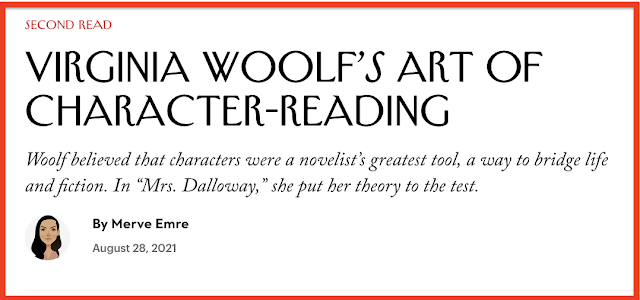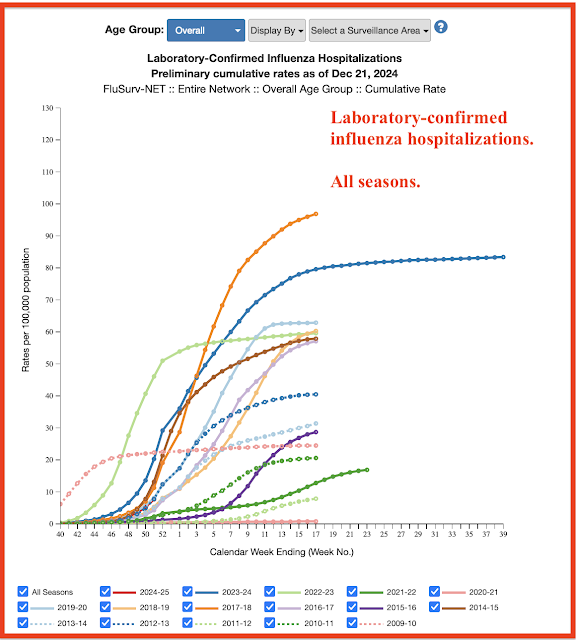Locator: 44558BOOKS.
Before we do the books, let's take a look at what Beth has for us:
Note which $4-trillion company is not on the list.
With regard to Tencent, see wiki and Tom's Hardware.
Now, the books.
These are the ones that caught my eye:
- #1, The Great Gatsby, F. Scott Fitzgerald
- #2, Mrs Dalloway, Virginia Woolf
- #3, The Trial, Franz Kafka
- #11, The Everlasting Man, G.K. Chesterton (going down another rabbit hole)
- #19, Giants in the Earth, O.E. Rølvaag
- #22, The Common Reader, Virginia Woolf
- #30, The Making of Americans, Gertrude Stein
- #40, Big Two-Hearted River, Ernest Hemingway
- #44, My First Thirty Years, Gertrude Beasley, wiki entry.
I've read all but three of them, but I read them years ago.
Back in the early 2000s -- maybe 2004, or thereabouts -- I typed out the entire Mrs Dalloway in free verse. It took me about six months, typing at most one or two hours four or five days each week. A valuable, valuable exercise. I made an interesting literary discovery, posted it on the web, something that had never been posted before to the best of my knowledge.
I was blown away by the titles listed above all came out in one year.
What was the best year ever for English literature?
From AI:
I think one could argue 1925 competes well with the year 1922.
For the 1922 list, link here.
********************************
Virginia Woolf, Character-Reading, And Merve Emre
Going Down More Rabbit Holes
Wow, this is a biggie. Virginia Woolf "bridged the gap" between character-reading in literature and character-reading in everyday life -- an important survival skill.
I had not heard of "character-reading" re-reading Merve Emre's introduction to The Annotated Mrs Dalloway, Virginia Woolf, c. 2021.
From The New Yorker, August 28, 2021 -- aha -- written by none other than ... drum roll ... wait for it .. Ms Merve Emre. Wow, wow, wow. At wiki, Merve Emre.
So stimulated, the reader learns how to be the writer’s accomplice in what Woolf called the art of “character-reading”: a practice of observing, of speculating about, people, both in life and in fiction.
The adept character-reader was one who fixed people with a powerful, sympathetic, and searching gaze; who seized on their unobtrusive moments—their small habits, their humble memories, their incessant chatter—to grasp the full force of their being.
Character-reading was an everyday talent, eminently useful and even necessary.
“Indeed it would be impossible to live for a year without disaster unless one practised character-reading and had some skill in the art,” Woolf wrote. “Our marriages, our friendships depend on it; our business largely depends on it; every day questions arise which can only be solved by its help.”
Though character-reading could smooth the social tribulations of adult life, Woolf held it to be, first and foremost, the art of the young. They drew on it for “friendships and other adventures and experiments” that were less frequently embarked on in middle or old age, when character-reading retreated from its inventiveness, its candid curiosity, and became a dutiful, pragmatic exercise, a way to avoid misunderstandings and arguments.
I've often stated
that military brats (children of active military personnel) become
very, very good at character-reading. I'm certainly no Virginia Woolf
but ... wow ... how unexpected.
But there's more to the story.
The Merve Emre-wiki entry is fascinating.
[An an aside, Merve Emre, Turkish, was born in Adana, Turkey. I was stationed, along with my family, in Adana for two years -- 1992 - 1994.]
Merve Emre "wrote the book" on the Myers-Briggs personality test. I just ordered it. Whoo-hoo.
Speaking of the 100th anniversary of some of the greatest books in literature ever written (see above), the Myers-Briggs personality test was developed in the 1920s.
Merve Emre:
Emre was born in Adana, Turkey. She graduated in 2003 from Paul D. Schreiber Senior High School in Port Washington, New York. [Assuming she was 18 years old when she graduated from high school, she was born in 1985.]
[My question: how did Merve get from Adana, Turkey, to the Paul D. Schreiber Senior High School in Port Washington, New York -- located on "West Egg" just down the street from where Jay Gatsby lived? See The Great Gatsby. My hunch: she was a military brat. Had her father been in the "foreign service," she would have been more likely to have been born in Ankara.]
After graduating in 2007 from Harvard, where she concentrated in government, Emre worked for six months as an assistant marketing consultant at Bain & Company. [Observation: another Harvard graduate that stands out. What is it about Harvard? The old chicken and the egg question?]
Emre says that she was a "terrible consultant" and spent most of her time at Bain studying for the literature Graduate Record Examinations under her desk.
However, Chris Bierly, her mentor at Bain, called her "other-level intelligent" and said "Of all the people I've recruited to Bain in the 30 years, and this is in the thousands, she is one of the brightest".
It was at Bain that Emre first took the Myers–Briggs Type Indicator, which would later be the subject of her second work of nonfiction, The Personality Brokers.
Emre earned her PhD in English literature from Yale University and thereafter joined the English department faculty at McGill University in Montreal, Canada.
In 2018, she was appointed an associate professor of American literature at Oxford University.
****************************
A Music Link
Geoff. 181 music videos.


















